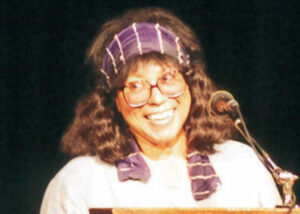
Introduction to the Inspiring Life of Author Mildred D. Taylor
Introduction You’ve probably read a few books in your lifetime. But have you ever read a book that changed your life? That’s what Mildred D.
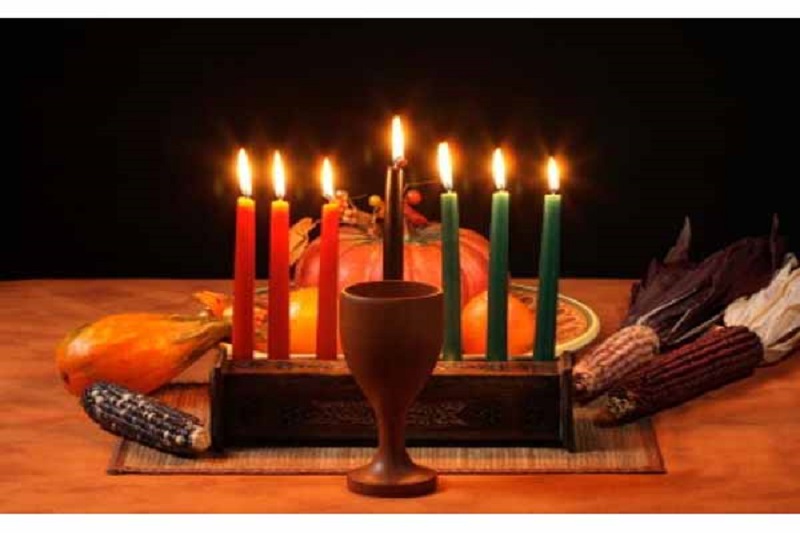
If you’re like countless other people, you might be wondering what Kwanzaa is all about. Well, wonder no more. In this article, we’ll give you a primer on the history and celebration of Kwanzaa.
Kwanzaa is an African American holiday, celebrated annually from December 26 to January 1. It is a weeklong celebration, culminating in gift-giving and a feast. Kwanzaa is rooted in first fruit celebrations and is based on seven core principles/values. During these seven days, families gather to celebrate their African roots, reflect on the past year, and look forward to the future.
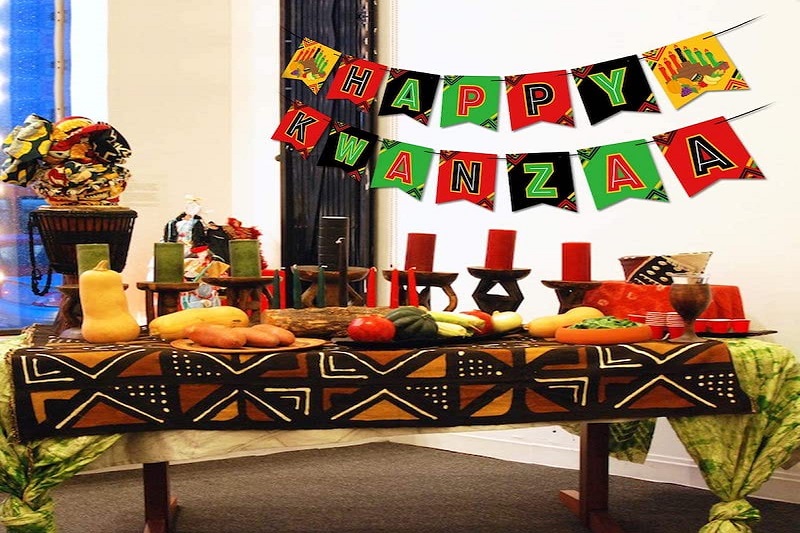
One of the most important aspects of Kwanzaa is the celebration of unity. Participants come together to share food, drinks, and stories as they celebrate their common heritage and values. Altogether, Kwanzaa is a time for reflection, celebration, and community building. So whether you’re of African descent or not, we hope you take the time to learn about and celebrate Kwanzaa. After all, it’s a time for us all to come together and celebrate our common humanity.
Kwanzaa is a week-long celebration of African-American heritage that begins on December 26th and ends on January 1st. The name of the celebration is derived from the Swahili phrase matunda ya kwanza, which means “first fruits.”Kwanzaa was created in 1966 by Dr. Maulana Karenga as a response to racial unrest in America. The holiday was intended to help African Americans celebrate their culture and traditions. Kwanzaa is based on seven principles, or Nguzo Saba, which promote unity, family, and self-determination.Today, Kwanzaa is celebrated by millions of people around the world. The holiday is typically marked by flag raisings, food gatherings, and gift exchanges.
Kwanzaa is an annual celebration that honors African heritage. Celebrated for seven days from December 26th to January 1st, Kwanzaa is marked by seven principles: unity, self-determination, collective responsibility, cooperative economics, purpose, creativity, and faith. Each principle is important in its way, but perhaps the most important one is unity. Kwanzaa is all about coming together as a community to celebrate our shared heritage and culture. It’s a time for us to reflect on our past and look ahead to the future.So if you’re celebrating Kwanzaa this year, make sure to take some time to learn about these principles and how they can help guide you throughout the year.
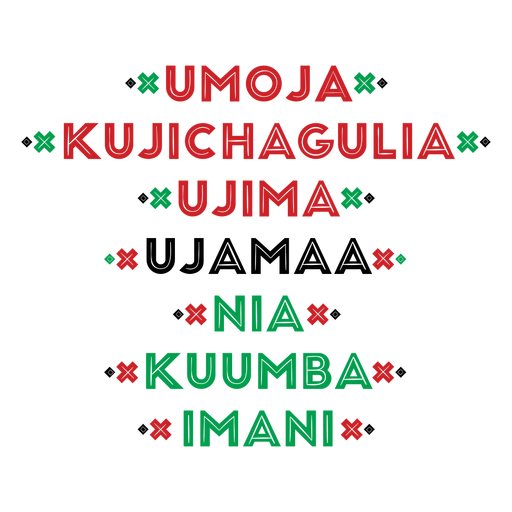
Kwanzaa is a beautiful and meaningful celebration of African-American heritage and culture. It lasts for seven days from the 26th of December until the 1st of January, each year. During this time, people gather to share stories, songs, and feast.The primary way that Kwanzaa is celebrated today is by gathering in homes to light candles on a kinara — an African candle holder. At the center of this is the black candle which represents unity, while red and green candles symbolize struggle and growth. The days of Kwanzaa are marked by feasting on traditional dishes, storytelling, singing, and dancing. Activities such as participating in discussions about Pan-Africanism or donating to charities are also typical during celebrations. Most importantly, Kwanzaa serves as a time to honor the core principles of African culture: Umoja (unity), Kujichagulia (self-determination), Ujima (collective work and responsibility), Ujamaa (cooperative economics), Nia (purpose), Kuumba (creativity) and Imani (faith).
Kwanzaa is filled with many rituals and traditions that make it a truly unique and special holiday. The celebration of Kwanzaa is typically done through activities such as storytelling, reflection, discussion, and plays. These activities are meant to bring the community together, inspire introspection and create a meaningful experience for all involved. One popular tradition during Kwanzaa is the sharing of an African story. This is usually done around the kinara or seven-branched candle holder. The story is meant to teach a moral lesson or provide historical context. It is a way for the community to come together and bond over their shared culture and history. Another popular tradition is the giving of gifts. This is typically done on the last day of Kwanzaa, which is known as Kujichagulia. Gifts are given to loved ones as a way to show appreciation and gratitude. They can be anything from homemade items to books or even experiences.
Click Image to Download An Activity
Ready to get started with celebrating Kwanzaa? Here are some of the most important resources you’ll need to make your celebration extra special. First and foremost, you’ll need an understanding and appreciation of Kwanzaa’s seven principles: Umoja (Unity), Kujichagulia (Self-determination), Ujima (Collective Work and Responsibility), Ujamaa (Cooperative Economics), Nia (Purpose), Kuumba (Creativity) and Imani (Faith). Once you have that in place, you can get your celebration ready.
https://www.officialkwanzaawebsite.org/
First, find a Kinara, a candle holder that has seven candles representing the seven principles of Kwanzaa. You will also need seven kikombe cha umoja or unity cups for pouring libations for ancestors who have passed. Find a mkeka or festive mat on which to display the kinara, kikombe cha Umoja, and Zawadi, gifts for children on the seventh day of Kwanzaa. Be sure to have plenty of traditional African decorations such as drums and artwork too! And most importantly, remember to share your knowledge by teaching others about Kwanzaa, helping them understand and appreciate its rich history and traditions.
Kwanzaa is a time to come together and celebrate your African heritage. It’s a time to reflect on the past year and look forward to the year ahead. It’s a time to celebrate your culture and your community. Kwanzaa is a time to remember your history and celebrate your culture. It’s a time to come together and build community. It’s a time to look forward to the future. Kwanzaa is a time to celebrate Africa and African-Americans.
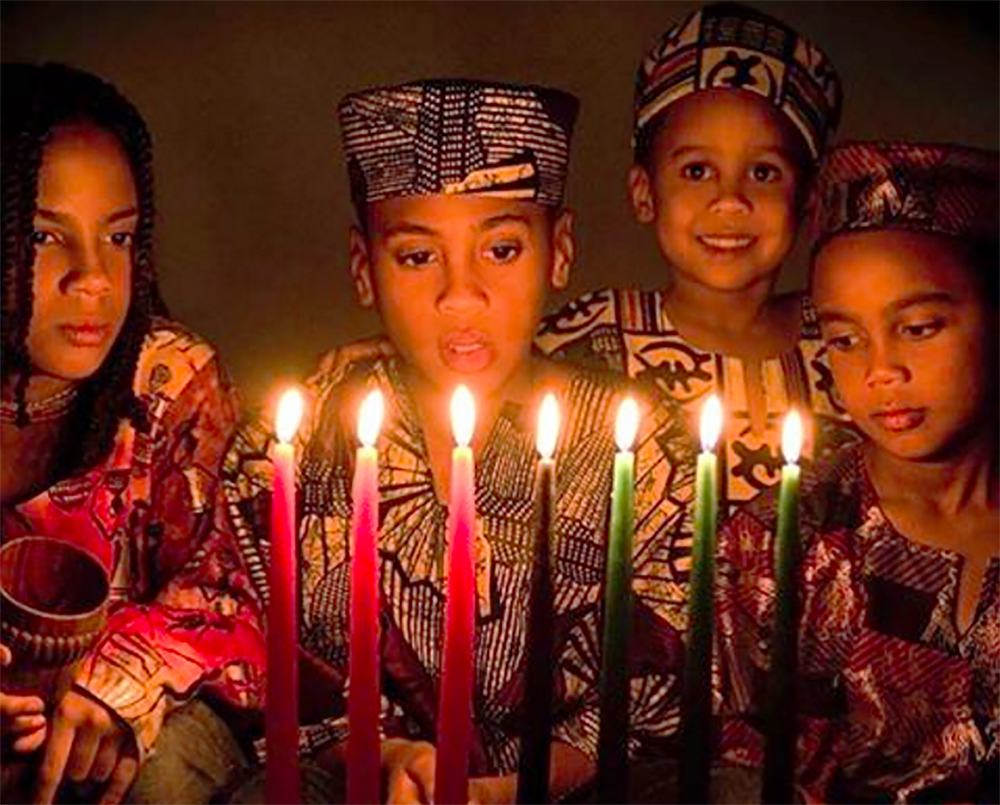
“Our children need a sense of specialness that comes from participating in a known and loved ritual. They need the mastery of self-discipline that comes from order. They need the self-awareness that comes from a knowledge of their past. They need Kwanzaa as a tool for building their future and our own.”

Introduction You’ve probably read a few books in your lifetime. But have you ever read a book that changed your life? That’s what Mildred D.

So you’re interested in becoming a podiatrist? That’s great! Podiatry is a fascinating and multifaceted field that can lead to a rewarding career. But before

If you’re not familiar with Sharon Flake, she’s a prolific author of young adult literature. Her books explore tough issues facing teenagers, from racism and

Hi, art lover! We wanted to introduce you to Shane W Evans, an extremely popular illustrator, and author. Evans was born in Columbus, Ohio, in